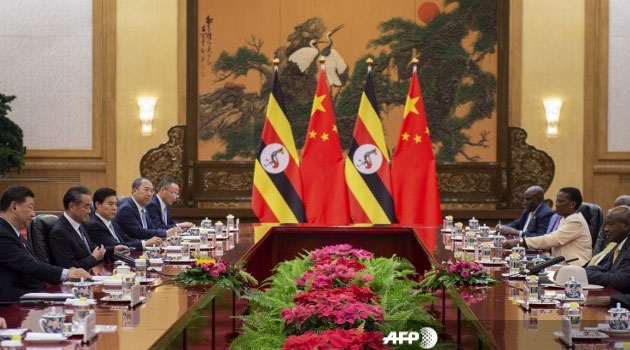
Ugandan President Yoweri Museveni (2nd R) and Chinese President Xi Jinping (2nd L) meet at the Great Hall of the People in Beijing on June 25, 2019.
NAIROBI, Kenya Sep 2 – Uganda’s President Yoweri Museveni has hailed the Chinese government for investing heavily in Africa.
In his remarks at the just-concluded Tokyo International Conference on African Development (TICAD) 7 in Japan, Museveni encouraged more African countries to embrace Chinese investments which, he said, will drive growth in the continent.
“I must salute the Chinese government for practically encouraging their private sector to come to Africa,” he said, “I hear that their government has put money in the Exim Bank of China.”
In recent years, China has been supporting African countries, in infrastructure development—including Kenya where it funded the construction of the Standard Gauge Railway from Mombasa to Nairobi, and now to Naivasha which is nearing completion.
It has also provided loans to the government for the construction of various other projects, including the country’s first superhighway on Thika road.
“Chinese companies are encouraged to come to Africa, identify “profitable” projects and come back and apply for the money,” Museveni said at the TICAD 7 conference in Japan, also attended by President Uhuru Kenyatta.
In Uganda, Museveni said, “some Chinese companies have used this method to build a fertilizer factory and a steel one.”
He also told the meeting of other Chinese “using their money to build many factories. Even some Indian factories are being built in that way.”
And he wondered why Japanese and Western companies cannot do the same.
Uganda, he said, is not devoid of the entrepreneurial classes.
“Unlike in the colonial times, the transport sector (buses, taxis, boda bodas etc) is now totally indigenized,” he said, in encouraging more investments to his country, “Trading is now indigenized, especially the importing sector.”








































